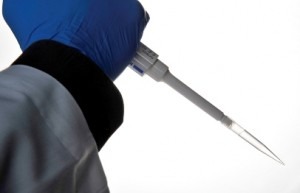
Thermo Fisher Scientific has introduced Bioservative, a sample preservation matrix that does not require refrigeration.
Bioservative ensures the cell viability of microbiological samples for up to seven days and delays the breakdown of RNA, DNA and peptides within a sample for up to 26 days.
Bacterial cells taken from the sampling environment and stored in Bioservative are held in a state of suspended metabolic activity, stopping continued growth and allowing accurate analysis of the bacterial content.
The matrix also stabilises the sample pH, preventing cell death and pH hydrolysis of biological molecules.
Preservation of samples in this way protects against freeze-thaw damage, enabling convenient aliquoting from batch materials in long-term storage.
Thermo Fisher claims that pharmaceutical, biomolecular, environmental, bioremediation and hygiene samples often contain fragile constituents that degrade rapidly if stored incorrectly.
And getting samples into cold storage quickly enough to prevent this breakdown presents significant logistical challenges.
Maintaining the integrity of sensitive sample components is critical to effective downstream processing and measurement.
Additionally, bacteria collected within microbiological samples continue to replicate after the sample is taken, potentially destroying the sample with biased overgrowth and cell lysis.
The Thermo Scientific Bioservative storage matrix is designed to provide the support necessary for the samples after they have been collected, boosting the efficacy of downstream analysis and generating more reliable data from the available material.




